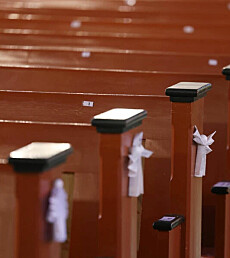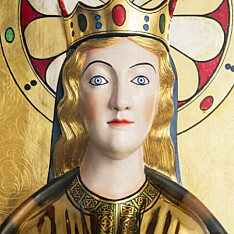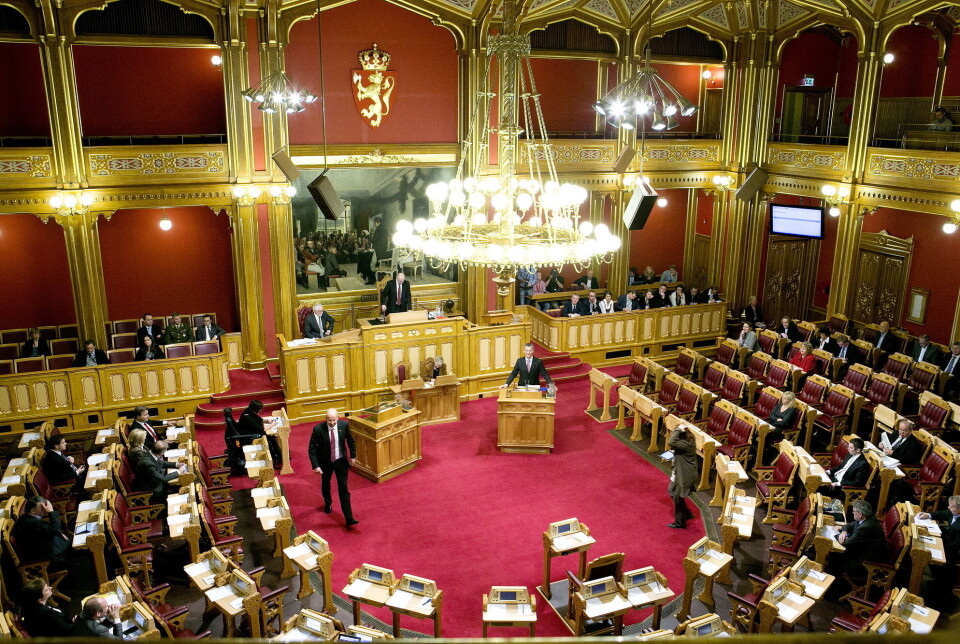
Norwegian parliamentary politicians laughed when they quoted from the Bible
The Bible has been used as a political guiding principle in three Norwegian parliamentary debates, twice for real and once for fun.
The Norwegian Constitution states that the Kingdom of Norway’s ethical principles are based on its Christian and humanist heritage. The Storting, the Norwegian parliament, has committed itself to this Christian heritage.
But God, Jesus and the Bible are rarely employed as ethical principles, arguments or references in parliamentary debates.
Associate Professor Ole Jakob Løland at the University of South-Eastern Norway has examined the position of the Bible in Norwegian politics.
“Today, the Bible is absent from the vast majority of political debates. When biblical quotations are so rarely used, they have no significance in the crafting of political decisions,” he said.
“They are used to score political points against other politicians,” Løland said to sciencenorway.no.
He has systematically searched for biblical quotations in Norwegian parliamentary debates after 1884.
He found only two debates where the Bible played an important role and was used as part of the basis for decisions.
Religion for and against women's rights
The first was in the 1880s, when the Storting was to adopt property rights for women. The second time was in the 1930s when the dispute was over female priests. In these two debates, some politicians used the Bible to argue that women were subordinate to men, while others used biblical texts as an argument for religious equality.
However, the Bible was not invoked in the debate when the Storting amended the Constitution in 2012 to create a separation between church and state.
“It was the most important religious policy decision about the state and church in Norway in 500 years. You might think that the dissolution of the state church would inspire politicians to use biblical texts,” Løland said.
But no one did.

Fun with the Bible
Bible quotations have been used in parliamentary debates in recent times, but mostly for fun.
That’s what happened during the debate on the national budget in 2012. The Bible quotes came thick and fast —politicians quoted from the Bible a total of 47 times.
“We probably have to go back to the debate about female priests in the 1930s to find something similar,” Løland said.
The Labour Party started. Marianne Aasen believed that research would solve major societal problems. She said: “If you familiarize yourself with climate research, the following Bible quote is very valid: ‘He who increases his knowledge increases his pain’.”
Here she used the Bible as a source of words of wisdom, not as a reference to God, Løland said.
The Old Testament for new buildings in Trøndelag
Other representatives followed.
“There is no Bible in the parliament hall, so maybe they googled the Bible texts. But it may also have been an agreed-up game to invoke the Bible, since the Bible quotations came like pearls on a string,” Løland said.
Tord Lien from the right-wing Progress Party (Frp) was unhappy that the government had not allocated money for a new building at the University College in Sør-Trøndelag. He quoted from the Old Testament: ‘It is better that you make no promise to him, than to promise and not keep it.’
Snorre Valen from the Socialist Left Party (SV) continued the Bible theme, now about school policy, “because in the Bible it says that ‘it is better to give than to receive’.” Elisabeth Aspaker from the Conservative Party criticized the government because Norwegian students do poorly in tests. She said: “And to borrow a verse from the Bible: ‘Lift up your eyes and look around you’.” The Minister of Education Kristin Halvorsen from the Socialist Left Party regretted that she ran out of Bible quotations.
“In this debate, the Bible was not used as a basis for religious values or as the word of God, but as a book from which we can derive good morals and sound values,” Løland said.
“They used the Bible to beat each other up a little,” he said.
The minutes from this parliamentary debate stated that there was constant gaiety in the hall. The representatives laughed.
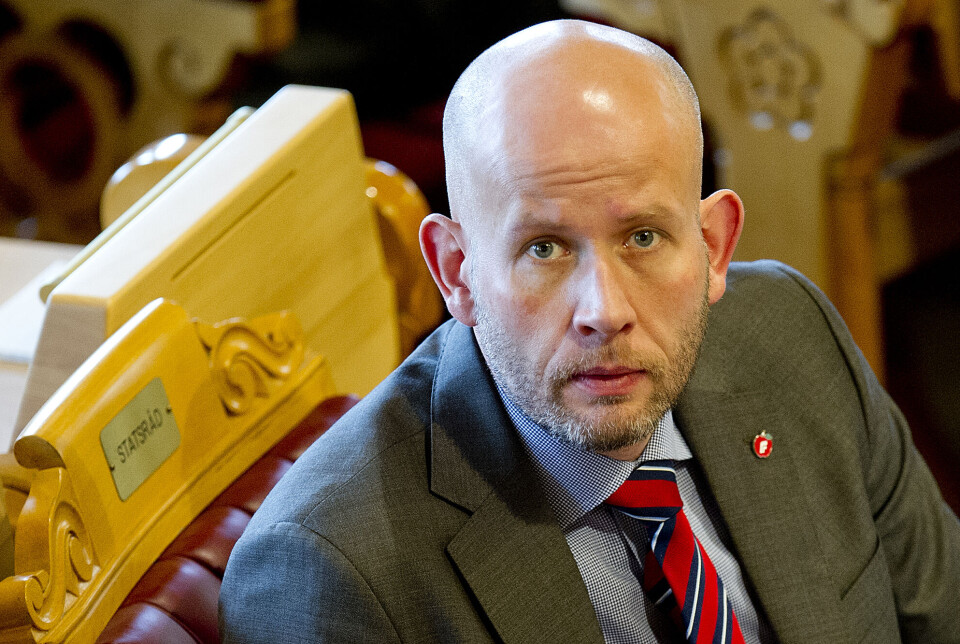
Fishing miracle threatens Norwegian exports
“It seems that they agreed that the stories from the Bible had little to add to a real political debate,” Løland said.
It was mostly fun. Henning Warloe from the Conservative Party offered a warning about the Bible's story of Jesus feeding 5,000 people with just five loaves and two fish. He remarked that this would damage the export market for Norwegian fish and seafood.
“Politicians make fun of the Bible in debates. They are not afraid to play with the text,” Løland said.
Politicians from the Norwegian Christian Democratic Party (KrF) also don’t refer to the Bible a lot in political debate.
“This is interesting, because the Christian Democratic Party is the only party that should act based on a Christian foundation,” says Løland.
Politics for everyone
According to their website, KrF's values are derived from the Bible, among other things.
“The Christian Democratic Party is conspicuously defensive in debates in the Storting and elsewhere,” Løland said.
Kjell Ingolf Ropstad, parliamentary representative from KrF, explains the lack of use of the Bible by saying that the party’s policies are for everyone.
“We base our politics on basic Christian values, such as charity, human dignity and administrative responsibility, but our policies are for everyone,” he wrote in an SMS to sciencenorway.no.
Ropstad said this is common practice in the Christian Democratic parties in Europe.
“There is a broad consensus among these parties to argue from a universally ethical standpoint, based on these values and based on human rights — and not through biblical quotations,” Ropstad said.
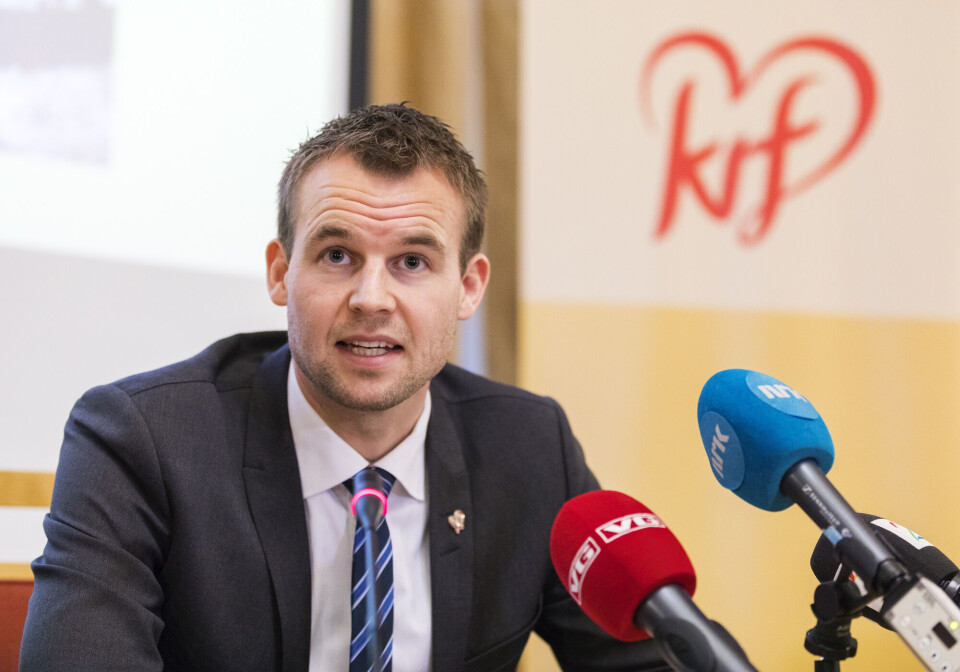
Stoltenberg follows biblical advice
“When the former KrF party leader, Knut Arild Hareide, referred to the Bible, he often did so in a self-deprecating tone,” Løland said.
Kjell Magne Bondevik, also from the Christian Democractic Party KrF quoted the Bible only once in the seven New Year's speeches he gave as Prime Minister from 1998 to 2005.
When Prime Minister Jens Stoltenberg from the Labour Party gave his New Year's speech in 2010, he quoted the Bible in all seriousness. He said the coalition government had followed the advice that Joseph gave to the pharaoh in Egypt, to save for good times. The Pharaoh built granaries. Stoltenberg built the Government's pension fund.
“No one was provoked or made fun of by Stoltenberg's use of this biblical text. It was successful political rhetoric,” Løland said.
The right-wing party called the Progress Party has contributed the most to putting religion on the political agenda in recent decades. Løland gives two examples.
The Progress Party and Jesus
Carl I. Hagen, leader of the Progress Party from 1978 to 2006, compared Jesus and Muhammad in a speech in 2004. Where Jesus said ‘Let the little children come to me,’ Muhammad would say ‘Let the little children come to me so that I can use them in my struggle to Islamize the world,’ Hagen said.
Hagen received a lot of criticism for what he said about Islam. Løland says that the Koran is rarely discussed in Norwegian parliamentary debates.
“I have never seen in any report of the Storting that the representatives show a lack of respect or engage in irreverent joking with the Koran, as they do with the Bible,” Løland said.
In 2015, Sylvi Listhaug from the Progress Party criticized the refugee policy in Norway. She used Jesus as an argument that Norway should accept fewer refugees, and rather help them where they are.
‘That was what Jesus was concerned with, that you should help as many people as possible. And it's not about helping as many people as possible in Norway,’ Listhaug said on the Norwegian Broadcasting Corporation’s evening news programme, Dagsnytt 18.
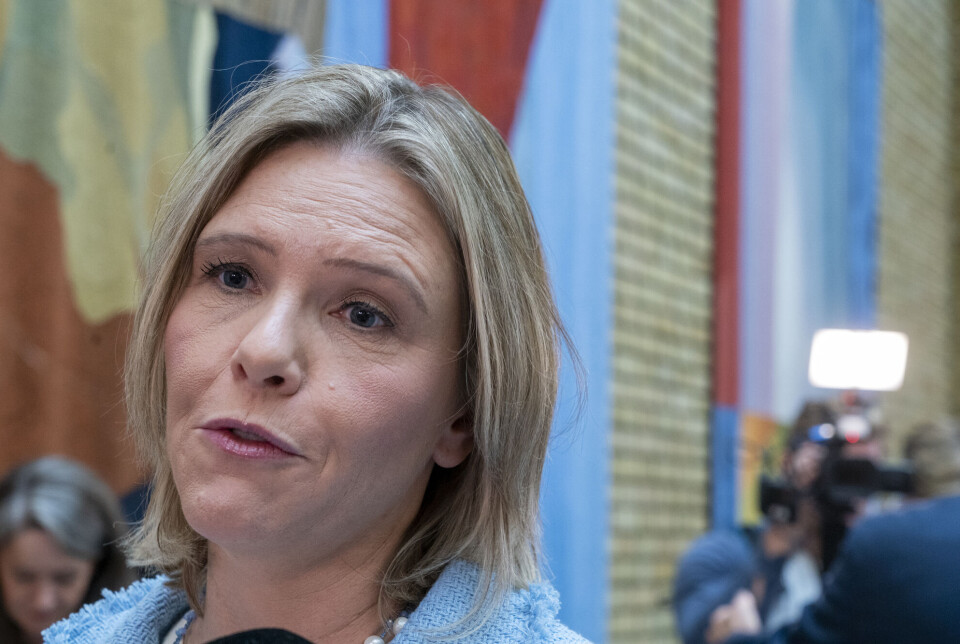
Uses the Bible for different politics
The bishop whom Listhaug debated on the news programme used neutral language and spoke about human dignity.
“It was the politician who used religion as a political tool in this debate, not the bishop. And Listhaug quoted Jesus in all seriousness. Here it wasn’t playful, like in the parliamentary debates,” Løland said.
Several researchers have looked at different uses of the Bible in political debate. Ole Jakob Løland gives an overview of the research in his article in the journal Kirke og Kultur (Church and Culture).
The Bible was long used to justify the monarchy, with a king who ruled by the grace of God.
Now American and British politicians use the Bible to argue for modern liberalism.
Løland can only find one such example from Norwegian politics.
Jesus for the individual
In the election campaign in 2017, former Liberal leader Trine Skei Grande claimed that the New Testament was about the individual. She said: "when Jesus heals, he never heals a group, but individuals."
Skei Grande tried to use the Bible as a basis for liberal Norwegian politics, according to Løland. Other politicians did not take up her line of argument.
“The Bible has had little to say in shaping Norwegian politics. The idea that politics can be based on biblical texts has become almost laughable,” Løland writes in his article in Kirke og Kultur.
So much so that politicians in the Storting do in fact laugh when they hear Bible quotes from the podium.
Translated by Nancy Bazilchuk
Reference:
Ole Jakob Løland: Bibelen på Stortinget. Når det blir munterhet i salen. (The Bible at the Storting. When there is hilarity in the hall.) Kirke og Kultur, 2022. Summary (in Norwegian).
———
Read the Norwegian version of this article at forskning.no









